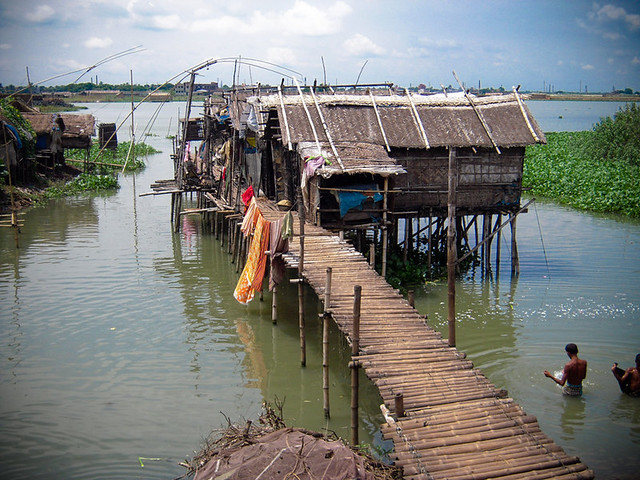ICOMOS work on Climate change
Cl imate change has become one of the most significant and fastest growing threats to people and their cultural heritage worldwide. ICOMOS embraces a two-pronged approach to the issue that emphasizes both responding to the risks that climate change poses to cultural heritage and also championing heritage as a source of resilience and an asset to climate action, whose potential is unlocked through better conservation and management of the world’s tangible and intangible cultural resources.
imate change has become one of the most significant and fastest growing threats to people and their cultural heritage worldwide. ICOMOS embraces a two-pronged approach to the issue that emphasizes both responding to the risks that climate change poses to cultural heritage and also championing heritage as a source of resilience and an asset to climate action, whose potential is unlocked through better conservation and management of the world’s tangible and intangible cultural resources.
In 2017 the ICOMOS General Assembly meeting in Delhi, India adopted Resolution 19GA 2017/30 welcoming the adoption of the Paris Agreement and committing the organization to mobilizing the cultural heritage community for climate action. The Resolution encouraged cultural-based solutions to achieving rapid and deep reductions in Greenhouse Gas emissions, as well as to climate change adaptation, with a focus on vulnerable communities and ecosystems. It also called for enhanced understanding and action with respect to loss and damage as well as for solidarity with those most impacted by, or least able to bear the cost of, climate change to enable them to safeguard their heritage in the face of a changing climate.
To learn more, read ICOMOS’s Culture Heritage and Climate Change: Understanding the Basics.
ICOMOS expertise in support of action against climate change
The ICOMOS Climate Change and Heritage Working Group (CCHWG) in charged with helping to address cultural heritage and climate change. The CCHWG is made up of 26 expert members drawn from North and South America, Africa, Europe, Asia and the Pacific representing a broad array of culture-related disciplines and backgrounds as well climate science expertise. The CCHWG also supports work on climate change by ICOMOS national committees across the world as well as by the ICOMOS network of international scientific committees and working groups.
In July 2019 the CCHWG issued its report “The Future of Our Pasts: Engaging Cultural Heritage in Climate Action.”The report found that cultural heritage offers immense and virtually untapped potential to drive climate action and support ethical and equitable transitions by communities towards low carbon, climate resilient development pathways. Realizing that potential, however, requires both better recognition of the cultural dimensions of climate change and adjusting the aims and methodologies of heritage practice.
How we Engage
Using the “Future of Our Pasts” report as a guide, ICOMOS’s work on climate change and culture heritage includes:
- Supporting the development of tools to assess vulnerability to and impacts of climate change on archaeological resources, collections and objects, historic buildings & structures, cultural landscapes, associated & traditional communities and intangible cultural heritage.
- Developing new policies and methodologies for the management and conservation of heritage in the face of climate change.
- Enhancing the connections between cultural heritage and climate science.
- Scaling out cultural heritage-based solutions to climate change mitigation and adaptation and further elaborating the role of arts, culture and heritage in development that is both sustainable and climate-resilient, including strengthening efforts to eradicate poverty and reduce inequalities.
- Ensuring consideration of cultural heritage in global climate policy and action as part of the broader global #ClimateHeritage movement.
Read / download
 Report The Future of Our Pasts: Engaging Cultural Heritage in Climate Action.
Report The Future of Our Pasts: Engaging Cultural Heritage in Climate Action.
ICOMOS Resolution 19GA 2017/30 "mobilizing the cultural heritage community for climate action".
Photo: Stilt houses, coping with climate change. Dhaka, Bangladesh © Development Planning Unit University College London
